Harmful household habits you should stop immediately
Curb these harmful home habits for good

goffkein.pro / Shutterstock
While we're all guilty of cutting a few corners from time to time, there are some household habits that could be seriously harmful to our health, especially given the current epidemic. Whether it's forgetting to clean door handles or not washing clothing at a high enough temperature, it’s more important than ever to clamp down on these detrimental practices and keep your home safe, sanitary and germ-free. Click or scroll for more...
Leaving pet bowls to linger
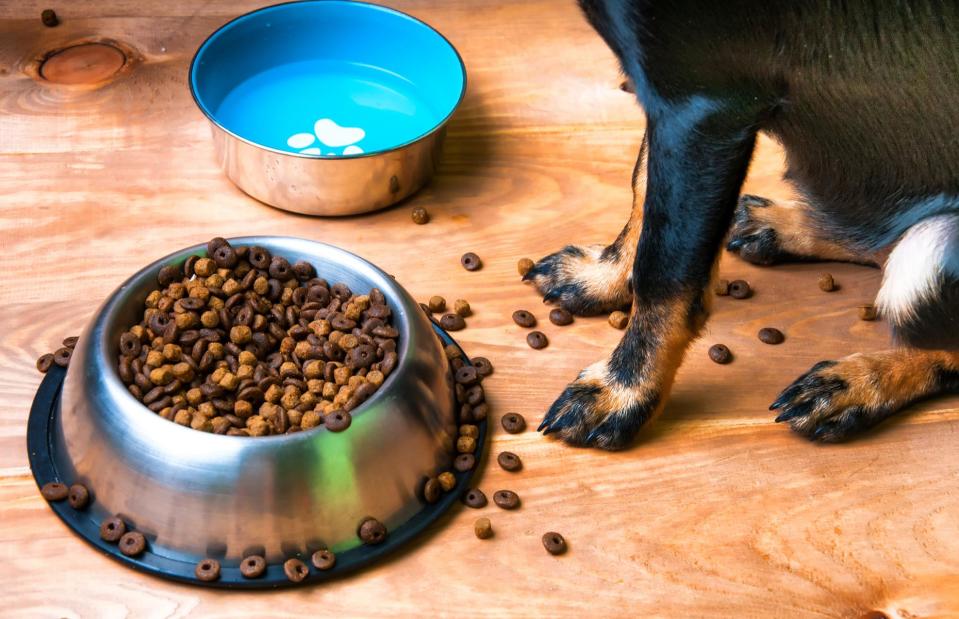
inventbbart / Shutterstock
We love our four-legged friends, but they're not the cleanest of eaters. Left throughout the day, particles of food on their dishes can provide a breeding ground for germs, which can be passed on to your pets. To keep things sanitary, wash any bowls with soap and hot water each day and soak in a diluted bleach rinse once a week.
Forgetting to clean cooker knobs
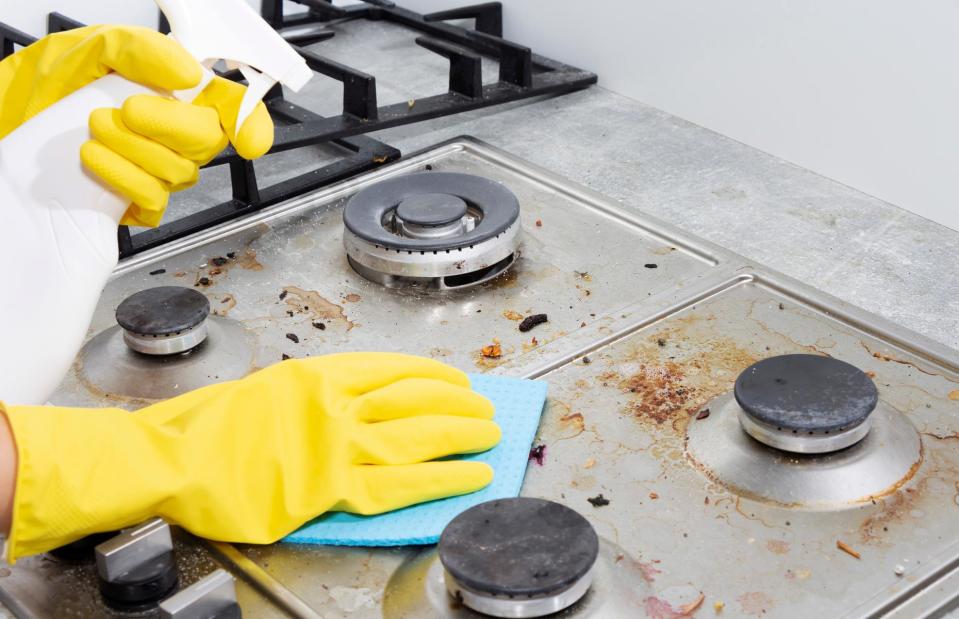
Mikhail Sedov / Shutterstock
While many of us regularly give our ovens a good clean down, one area that's often neglected is the controls. Harbouring hidden germs, the dials are regularly splattered with food and touched frequently between preparation. To give them a thorough clean, remove the knobs and wash in hot soapy water.
Only using one chopping board for food prep
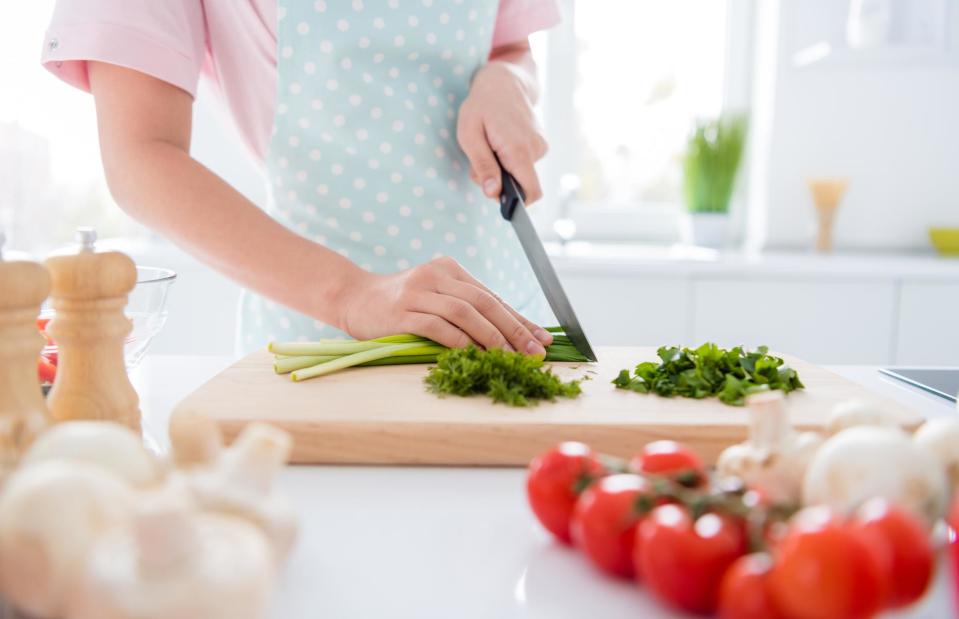
Roman Samborskyi / Shutterstock
Cooking up a wholesome meal often involves handling lots of different produce, from vegetables to fish and meat. If you only use one chopping board, you're at high risk of bacteria spreading from raw products and contaminating the rest of your food. To stop harmful microbes becoming an uninvited dinner guest, invest in an array of colour-coded non-porous boards for your food prep and clean thoroughly after each use.
Using a sponge for way too long
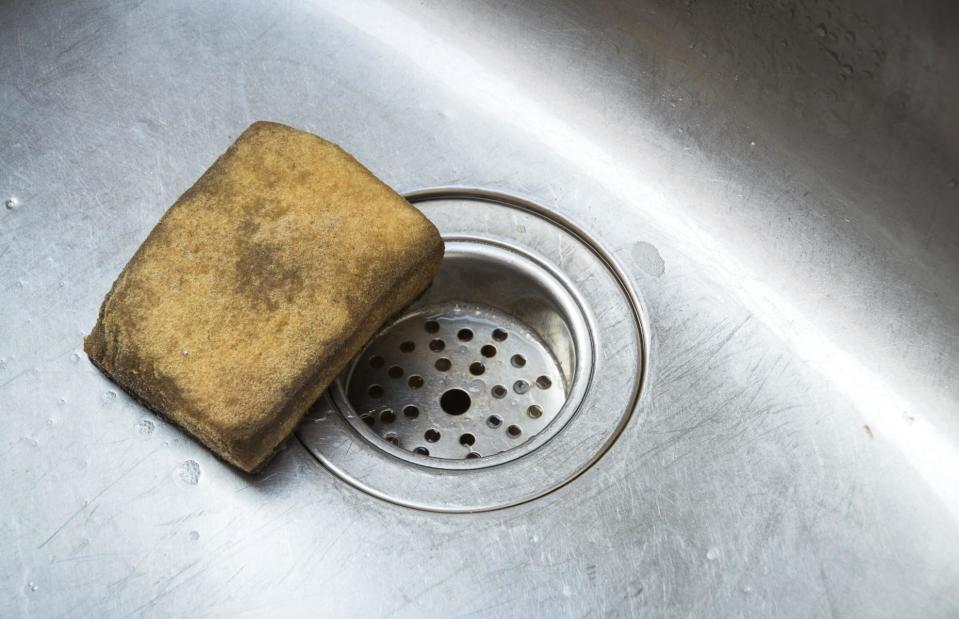
Myibean / Shutterstock
Microbiologists say that the average kitchen sponge hosts more bacteria than any other object in most homes. Ideally, you should be changing your sponge around once a week to minimise build-up. It’s a good idea to bulk-buy sponges in multipacks – it’s cost-effective, and means you’ll always have a fresh one to hand.
Wearing shoes indoors
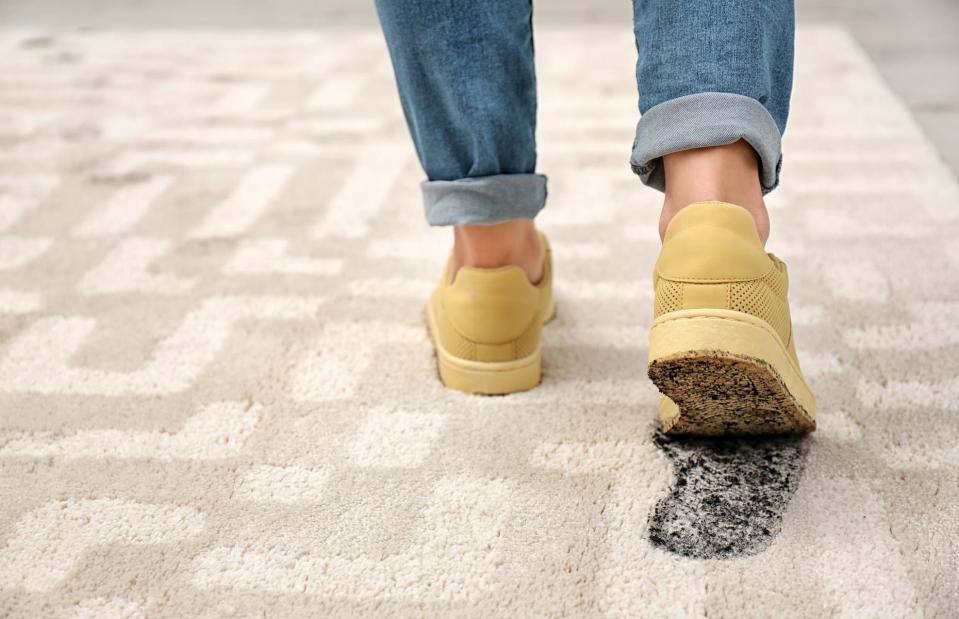
New Africa / Shutterstock
At some point in our lives, we've all heard our parents tell us to take our shoes off at the front door – and with good reason. Even if your shoes aren't visibly dirty, they're teeming with bacteria picked up from the outside world. In fact, a study by the University of Arizona found an average of 421,000 units of bacteria on footwear. Leave germs out in the cold and remove your shoes at the door!
Not wiping door handles
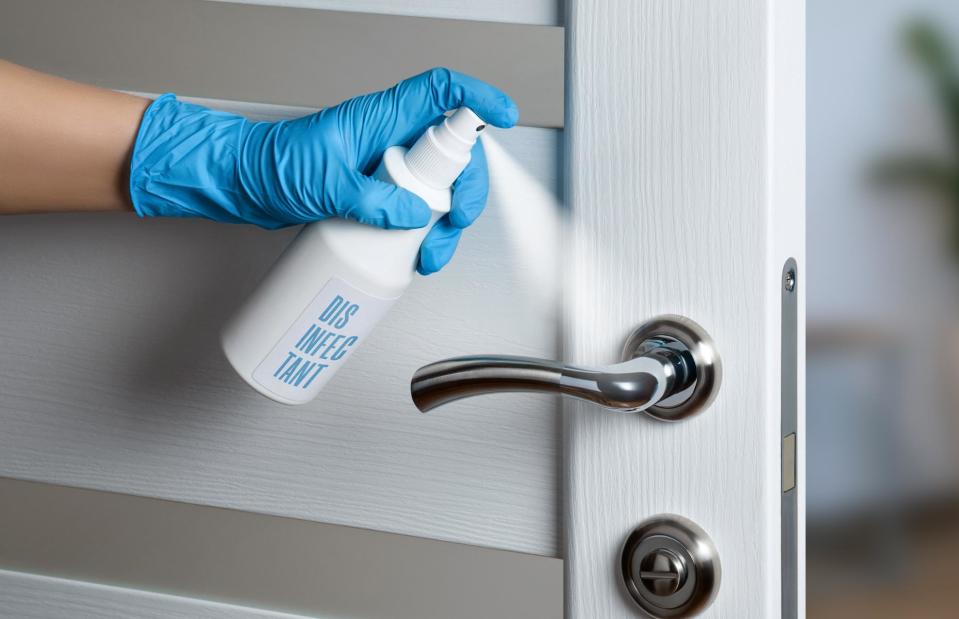
VIKTORIUS-73 / Shutterstock
When we clean our homes, it's all too easy to forget about the door handles. Constantly used throughout the day and touched by every family member, harmful microbes can linger here, transferring from one person to another. Keep germs in check by remembering to disinfect your door handles at the end of every day. To banish viruses, opt for an antibacterial product with an alcohol content of over 60%.
Not washing towels and sheets often enough
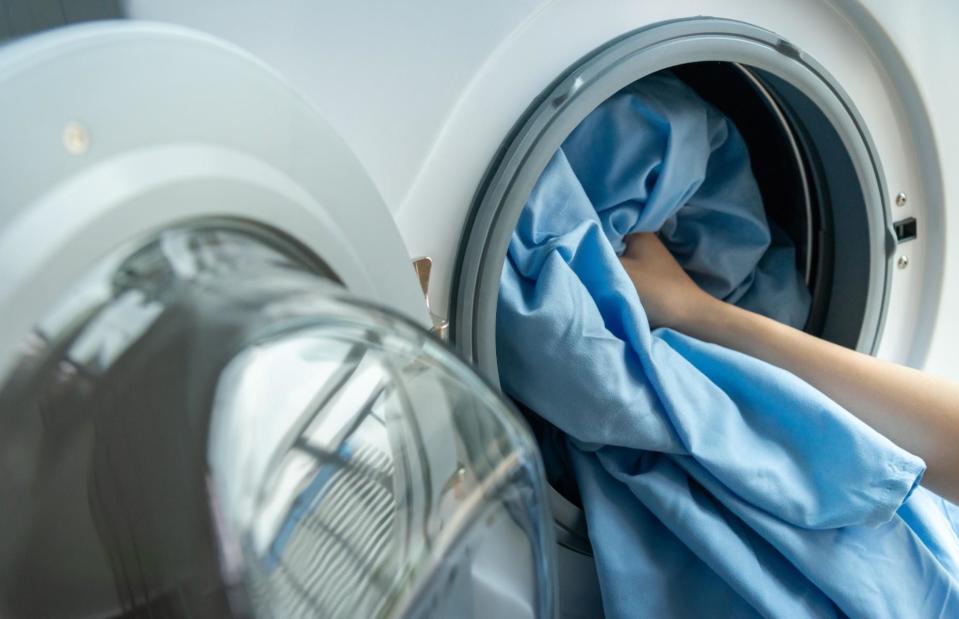
Sara Anne / Shutterstock
While bedsheets and towels often don’t get visibly dirty or smelly the way clothes can, they need to be washed just as frequently. Leave them for too long and germs will inevitably build up. Experts say we should be washing our bathroom towels every three to four days, and our sheets weekly at 60°C to kill harmful microbes.
Using too much cleaning product

Pormezz / Shutterstock
When you use more spray cleaner, wood polish or laundry detergent than you need to, you’re just adding to a build-up on surfaces that actually means you'll need to clean more often. Follow the instructions on the product packaging carefully – the lids of most bottles of laundry detergent double up as handy measuring cups.
Not cleaning the TV remote
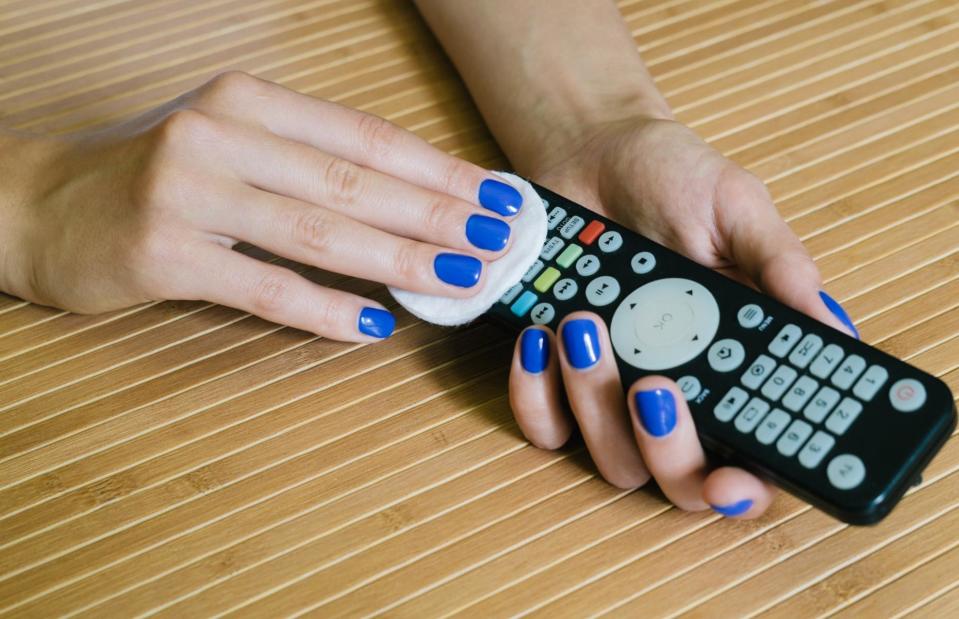
Progressman / Shutterstock
This one is all too easy to forget but when you think about the number of times your TV remote is touched every day, it makes sense to give it a wipe down every week or so. Remove the batteries, then use a cloth and rubbing alcohol to clean all over the remote. If there’s dirt wedged in the gaps around the buttons, use a toothpick to remove it.
Forgetting to clean the lint filter in the dryer

ThamKC / Shutterstock
When lint builds up in the filter, airflow is restricted, meaning your clothes won’t dry as quickly. It can also increase humidity levels, causing mildew and mould to develop around walls – and, as lint is combustible, it can even pose a fire risk. It’s a good idea to get into the habit of cleaning the lint filter after every load of laundry, so that lint never gets a chance to build up.
Neglecting your gutters
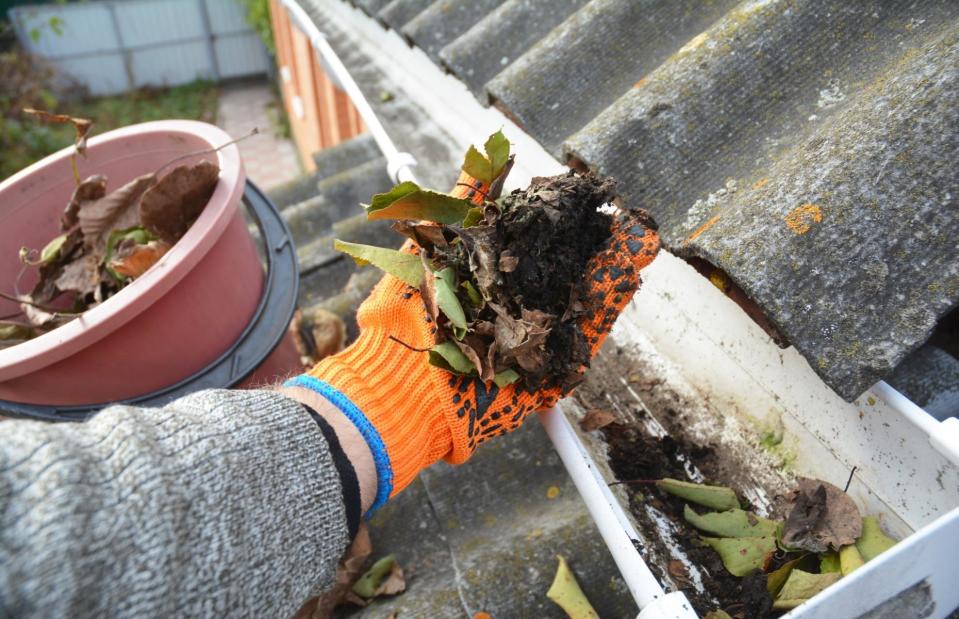
Radovan1 / Shutterstock
Forgetting to clean your roof gutters regularly can lead to water seepage and structural issues, posing a much bigger and more time-consuming problem in the long run. Like many seasonal garden jobs, gutters should be cleaned around twice a year, or up to four times a year if your house is surrounded by a lot of trees.
Using the oven as emergency storage
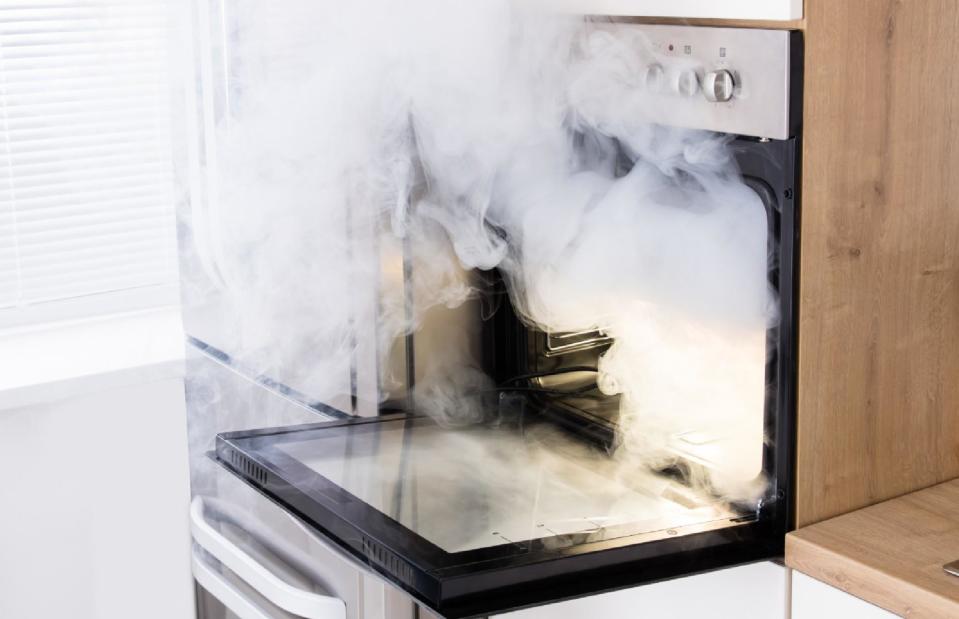
Andrey_Popov / Shutterstock
Your stove should be used for cooking and cooking only. Storing pots and pans, crockery or dry goods in there is a recipe for disaster – if you forget something is inside and switch the oven on, you could very easily start a fire. Plus, using your oven as a storage solution in the long term is likely to put you off cleaning it – or even using it to cook.
Painting over rusty railings
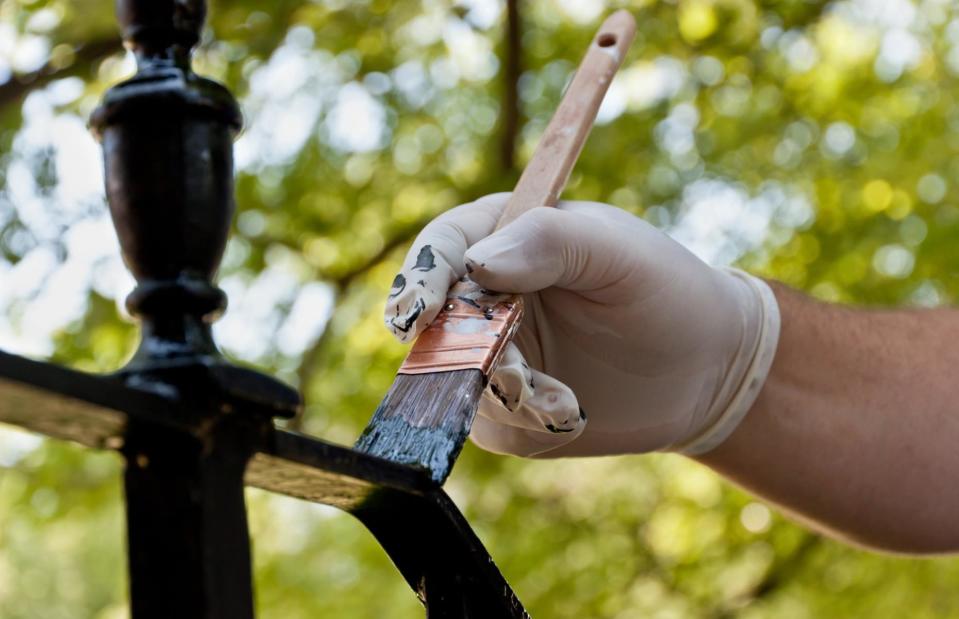
Greg McGill / Shutterstock
If the railings in your garden or balcony are starting to rust, applying a fresh coat of paint directly over them won’t solve the problem. This is because rust prevents new paint from taking hold, so you’ll need to scrape it off and start from scratch.
Leaving wet towels on the floor
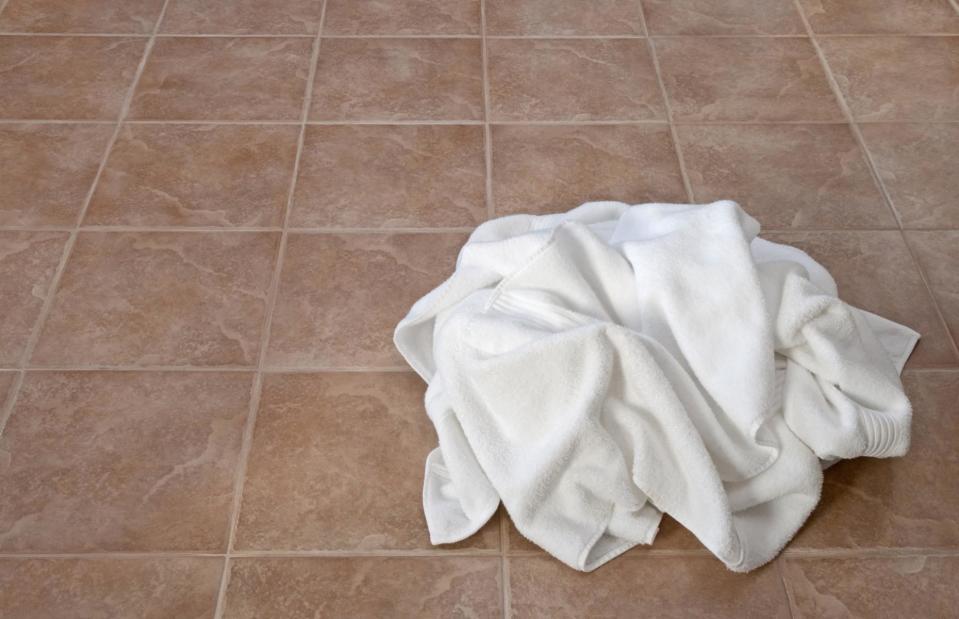
Studio Light and Shade / Shutterstock
Throwing your towel on the floor after a bath or shower prevents it from drying out properly, which will lead to bad smells. It also means your bathroom will get dirty much more quickly, as a damp towel is the perfect environment for bacteria, mould and mildew to grow.
Leaving shower curtains bunched up
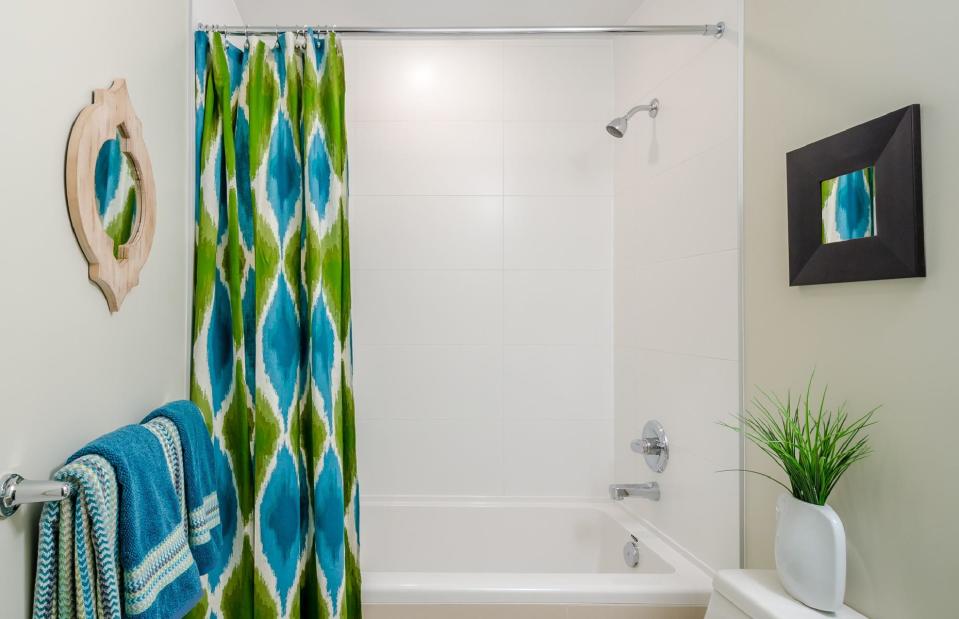
karamysh / Shutterstock
Leaving a wet shower curtain scrunched up at one end of the rail encourages mildew to grow on it – yuck! To prevent this, try and fully close your curtain after each shower, allowing it to dry properly.
Not emptying the vacuum bag or filter
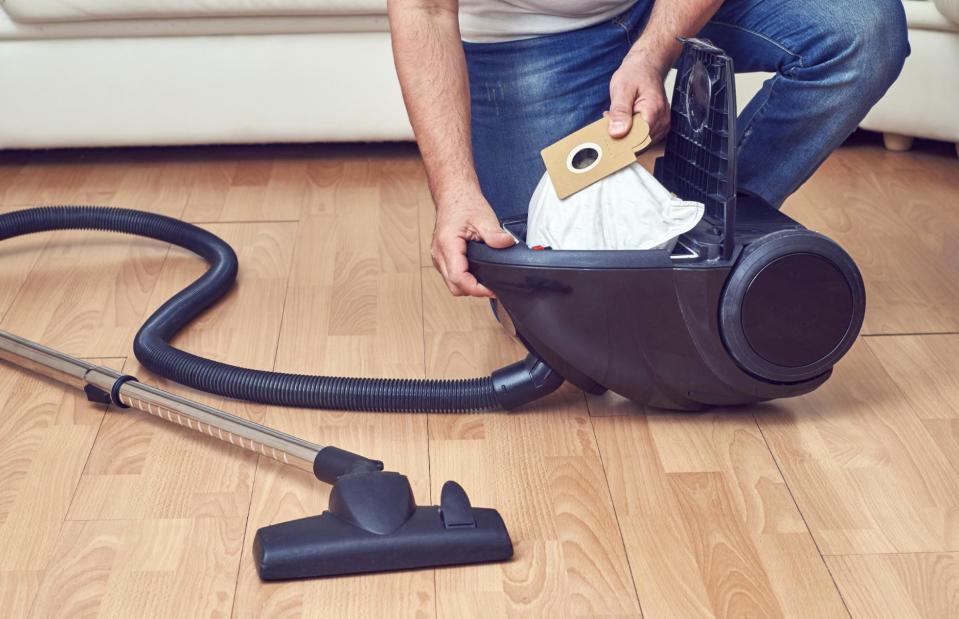
Georgy Dzyura / Shutterstock
Allowing dirt and dust to build up in your vacuum cleaner’s bag or filter can prevent it from working properly, and it can be very frustrating when this happens mid-cleaning session! Most vacuum manufacturers recommend you change your filter around every three to six months.
Using one disinfectant wipe to clean the bathroom
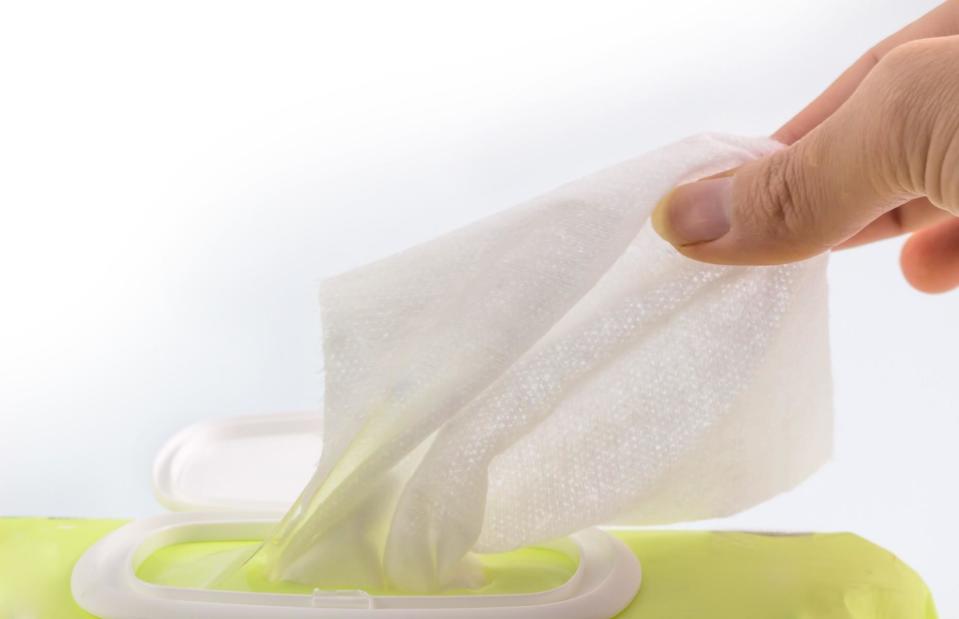
Stella Photography / Shutterstock
One wipe doesn’t contain enough disinfectant to tackle a whole room. You'd have to use a different wipe for each section of your bathroom – one for the sink, one for the toilet, one for the shower and perhaps two for a large bathtub – to have any real effect. Or better yet, ditch the wipes and use a washable cloth and eco-friendly disinfectant.
Leaving the dusting until last
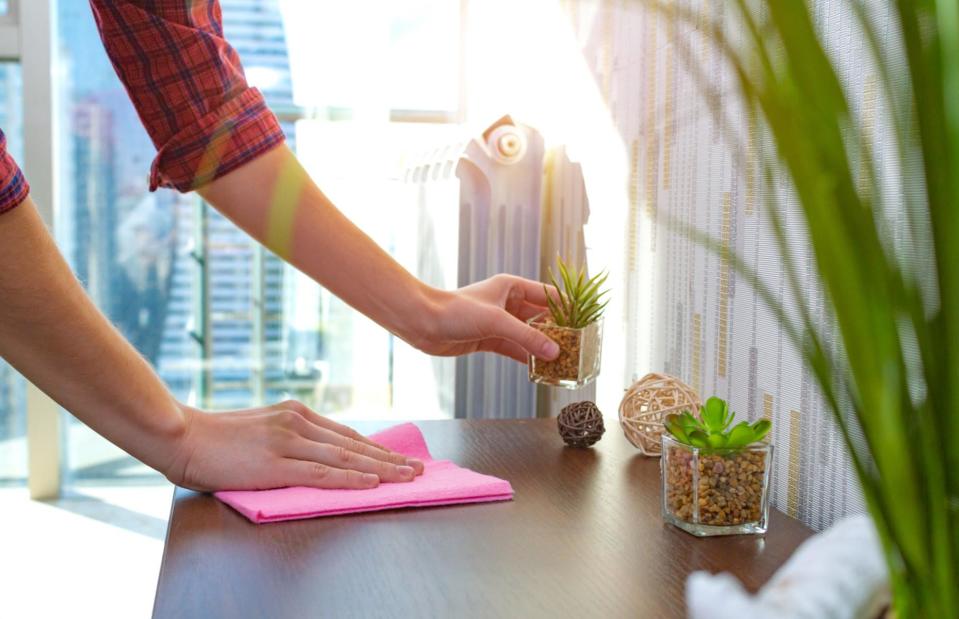
goffkein.pro / Shutterstock
If you vacuum your house before dusting, you’re undoing all your hard work – dusting furniture, shelving and ornaments will cause particles of dust and dirt to fall to the floor, meaning you’ll need to vacuum again.
Using an old non-stick pan
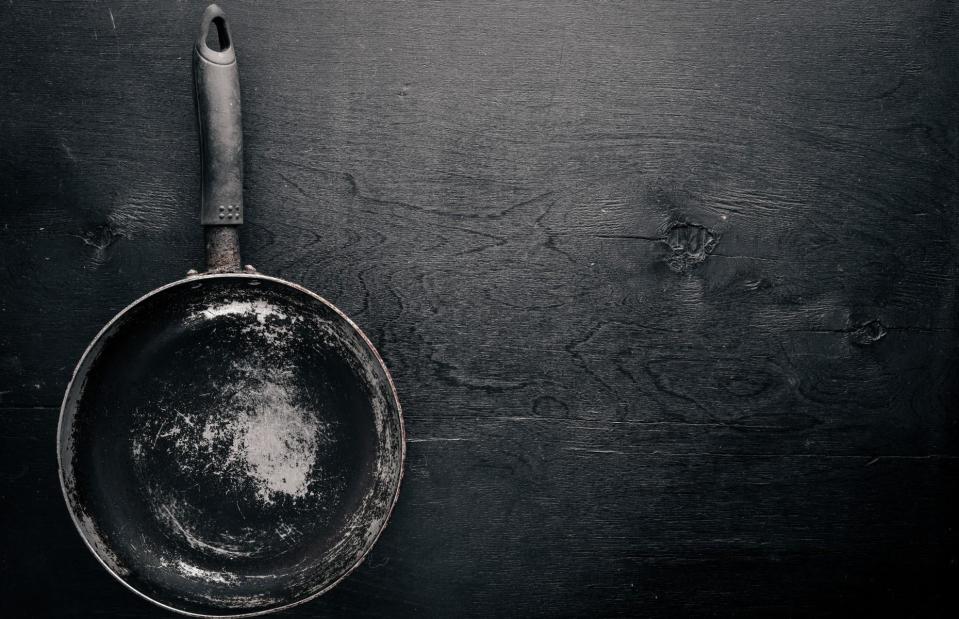
YARUNIV Studio / Shutterstock
Not many people know that over time, the Teflon coating on non-stick pans can break down and end up in your food. To avoid this, it’s a good idea to replace your pots and pans every couple of years, or as soon as their surfaces start to peel off.
Leaving dishes to soak in the sink
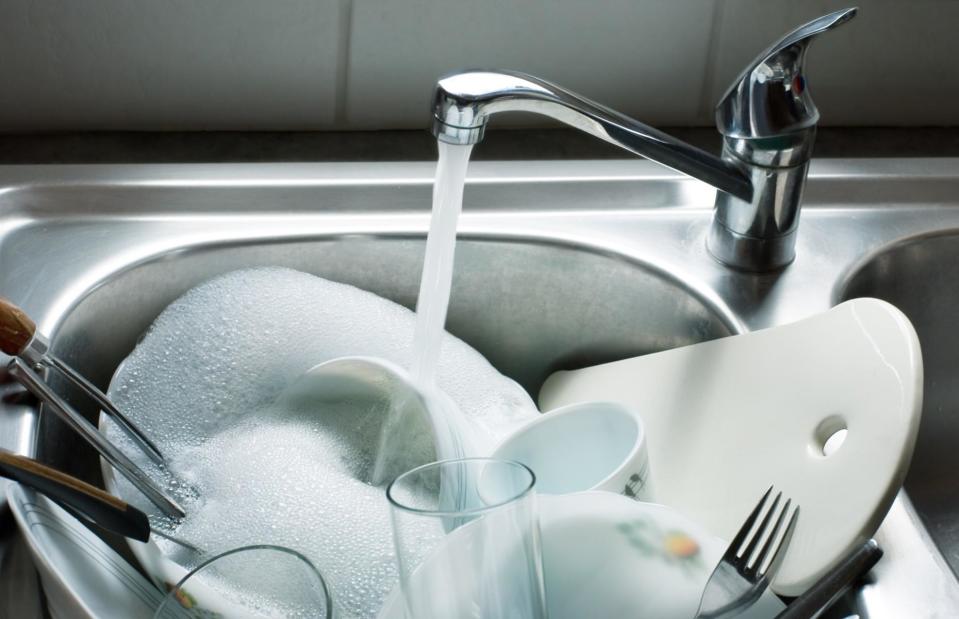
Nika Art / Shutterstock
Bad news for washing-up procrastinators: research from the University of Arizona has found that the average kitchen sink contains more E. coli than a toilet does after it’s been flushed. Leaving dishes in there for too long can allow the bacteria to grow on those, too – and considering you’ll be eating off them, that’s something you’ll definitely want to avoid.
Flushing the toilet with the lid up
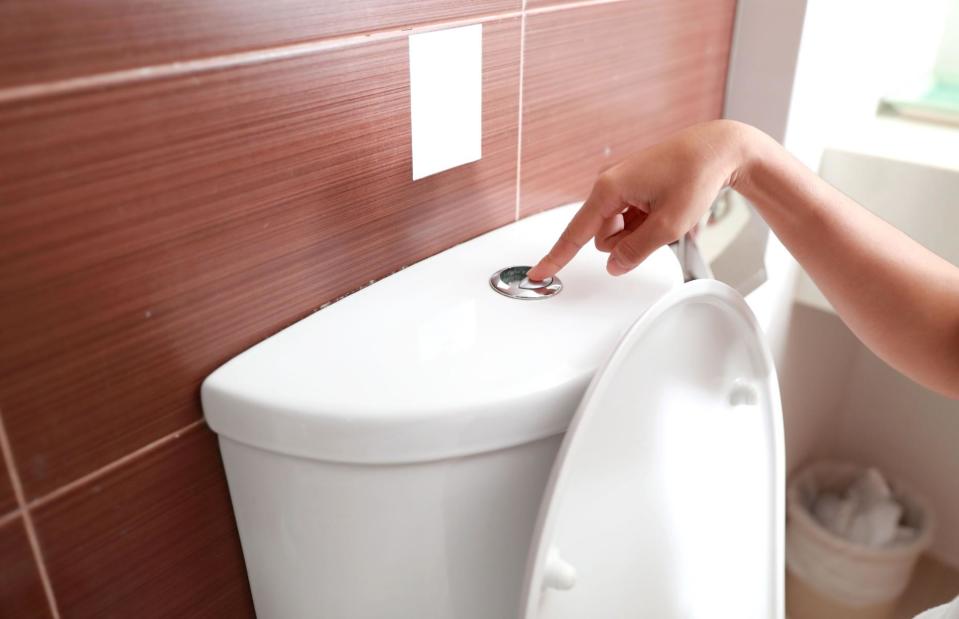
feeling lucky / Shutterstock
Always put the lid of the toilet down before flushing it. If the bowl is left uncovered, the flush can send a super-fine spray of water – and germs – up into the air. Invest in a slow-release toilet seat you can allow to fall closed, to minimise the need to touch the toilet bowl when you close it.
Rinsing food down the sink

Tolikoff Photography / Shutterstock
Washing away excess food down the sink before doing the dishes is an easy habit to get into but these scraps can clog up your drain and cause blockages. Instead, scrape any leftover food into the bin before washing the dishes – it might be more time-consuming, but it’s better than dealing with a blocked sink!
Not opening windows in the winter

Fevziie / Shutterstock
It’s tempting to keep your windows firmly shut during the cold winter months but your home needs air flowing through it all year round in order to prevent damp problems. Try to open the windows in rooms you aren’t using from time to time, so that condensation doesn’t get a chance to build up, otherwise you'll be faced with trying to get rid of mould and mildew.
Running the dishwasher half-empty

Gabi Moisa / Shutterstock
Using the dishwasher for small loads wastes water and electricity, which could cost you money in the long term, as well as harming the environment. If you can’t wait until there are enough dishes for a full load, it’s best to wash them by hand.
Leaving laundry in the washer

Africa Studio / Shutterstock
It’s easy to put a load of laundry in the washer and then forget about it for the rest of the day but the longer it’s left in there, the more chance mould has to build up on your clothes, causing foul smells. Set a reminder on your phone to hang out your laundry as soon as it’s done.
Burning unsafe items

huihyper / Shutterstock
Before burning something in your fireplace, check that it’s safe to do so. For example, coloured paper can increase flame temperature and potentially damage the flue, cause a chimney fire and emit toxic fumes into the air. Other items that are dangerous to burn include plastics, cardboard and wet wood.
Using too much mulch
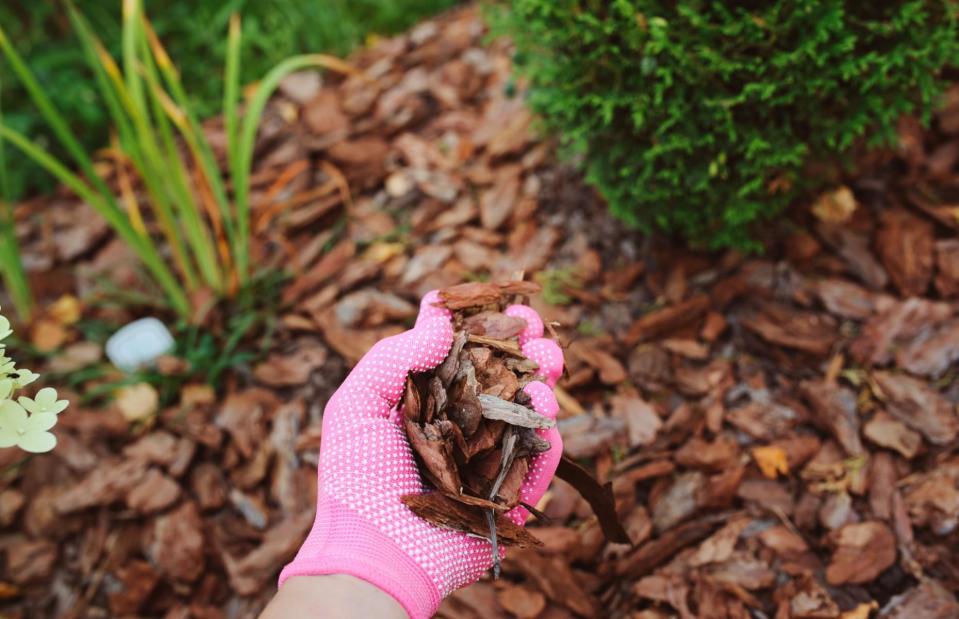
Maria Evseyeva / Shutterstock
When it comes to using mulch in your garden, overdoing it can cause moisture retention, leading to plant disease and decay. A one- to two-inch layer of fine mulch or three to four inches of a coarser material should be sufficient.
Loved this? Follow us on Facebook for more top household tips


